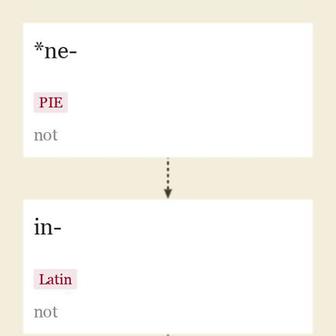Entries linking to imparity
1620s, "equality in value or circumstances," also "value of one currency in terms of another," from Latin par "equal, equal-sized, well-matched," also as a noun, "that which is equal, equality," a word of unknown and disputed origin. De Vaan is noncommittal. Watkins suggests perhaps from PIE root *pere- (2) "to grant, allot," with suggestion of reciprocality. Another guess connects it with PIE root *per- (5) "to traffic in, sell" (on notion of "give equal value for"). Meaning "a standard fixed by consent or by natural conditions, average or usual amount" is first attested 1767. Golf sense is attested by 1898, which led to the figurative use of par for the course for "fairly normal, what can be expected" (by 1928).
word-forming element meaning "not, opposite of, without" (also im-, il-, ir- by assimilation of -n- with following consonant, a tendency which began in later Latin), from Latin in- "not," cognate with Greek an-, Old English un-, all from PIE root *ne- "not."
In Old French and Middle English often en-, but most of these forms have not survived in Modern English, and the few that do (enemy, for instance) no longer are felt as negative. The rule of thumb in English has been to use in- with obviously Latin elements, un- with native or nativized ones.
Trends of imparity
More to Explore
updated on September 28, 2017
Trending words
Dictionary entries near imparity
impale
impalement
impalpable
impanate
impanel
imparity
impart
impartial
impartiality
impartible
impassable

